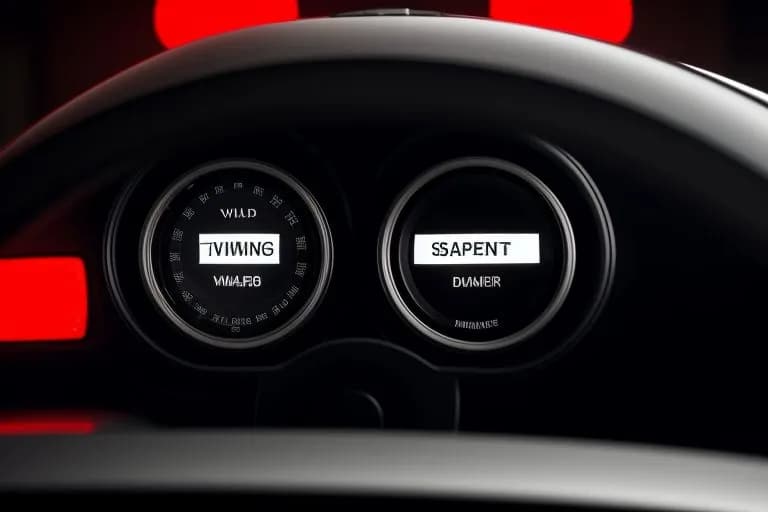5 Best Home EV Chargers for 2024
Discover the top home EV chargers of 2024. Explore options like the ChargePoint Home Flex, Tesla Universal Wall Connector, and more. Compare pros, cons, and features to find the best EV home charger for your needs.
Tested: Best EV Chargers for 2024
Choosing the best home EV charger can be a daunting task with so many options available. Whether you're looking for cutting-edge technology, budget-friendly models, or future-proof solutions, this guide has you covered. Let’s dive into the top-rated EV chargers for 2024 to find the perfect fit for your home.
Key Takeaways
- The ChargePoint Home Flex is our top pick for its versatility and smart features.
- The Emporia EV Charger offers excellent value for budget-conscious buyers.
- The Tesla Universal Wall Connector and Grizzl-E Smart Connect are great for future-proofing your home charging setup.
- Consider factors like charge rate, compatibility, and installation costs when choosing a home EV charger.
Tested Models
We evaluated various EV chargers based on performance, price, ease of installation, and features. Here’s our verdict:
Best Overall
ChargePoint Home Flex Electric Vehicle Charger
The ChargePoint Home Flex stands out with its adjustable amperage and compatibility with all EVs. It features Wi-Fi connectivity, a user-friendly app, and flexible installation options.
Best EV Charger on a Budget
Emporia EV Charger
The Emporia EV Charger offers excellent performance at an affordable price. It includes smart features such as energy monitoring and scheduling while remaining easy to install and use.
Best for Future Proofing
Tesla Universal Wall Connector
Designed for Tesla owners, this charger also supports non-Tesla vehicles with an adapter. It’s sleek, reliable, and built to last.
Lectron 32 Amp
A solid mid-range option with versatile compatibility and excellent durability.
Grizzl-E Smart Connect EV Charger
This rugged, weatherproof charger is ideal for outdoor setups and features smart charging capabilities.
JuiceBox 40 Smart EV Charging Station with WiFi
Combining power and intelligence, the JuiceBox 40 provides fast charging speeds and advanced smart features like energy management.
EV Charging at Home
Home charging is a convenient way to keep your EV ready for the road. Understanding the different levels of charging, costs, and installation requirements is crucial for making an informed decision.
EV Charging Levels
EV chargers are classified into Level 1, Level 2, and Level 3. Level 1 chargers are the slowest and plug into standard outlets, while Level 2 chargers require a 240V outlet for faster charging. Level 3 chargers, or DC fast chargers, are typically found in commercial settings.
Cost to Install an EV Charger at Home
Installation costs vary based on the charger type, your home’s electrical system, and labor rates. On average, expect to spend $500–$2,000 for installation. Some states offer incentives to offset these costs.
Tax Breaks for EV Charging Expenses
The U.S. government offers tax credits for installing home EV chargers. Check your eligibility to save up to 30% on installation costs. Visit IRS.gov for more details.
How We Tested EV Chargers
Our team tested chargers based on installation ease, compatibility, performance, and smart features. We simulated real-world scenarios to provide unbiased recommendations.
Understanding Charging Speeds
Charging speed is one of the most critical factors when choosing a home EV charger. Charging speeds are typically measured in kilowatts (kW), which determine how quickly your EV’s battery can be replenished. Higher-powered chargers, like Level 2 chargers, can provide up to 25-30 miles of range per hour of charging, making them the preferred choice for most EV owners.
For instance:
- Level 1 Chargers: 2-5 miles of range per hour, ideal for overnight charging or occasional use.
- Level 2 Chargers: 20-30 miles of range per hour, suitable for daily use and faster charging.
- Level 3 Chargers: 100+ miles of range in 30 minutes, typically for commercial use.
Safety Features in Home EV Chargers
Safety should be a top priority when installing a home EV charger. Modern chargers come with multiple safety features to protect your vehicle and your home. Some of these include:
- Overcurrent Protection: Prevents excessive current flow that can damage your EV or electrical system.
- Ground Fault Protection: Ensures no electrical leakage occurs, reducing the risk of shocks or fires.
- Temperature Monitoring: Avoids overheating by shutting off the charger when necessary.
- Surge Protection: Shields your charger and EV from power surges caused by electrical storms or grid issues.
Before purchasing, ensure your chosen charger meets safety standards set by organizations like UL and ENERGY STAR.
Table: Comparison of Key Home EV Chargers
Here's a comparison of popular home EV chargers based on key features:
| Model | Power Output | Connectivity | Outdoor Rating | Price Range |
|---|---|---|---|---|
| ChargePoint Home Flex | 16-50 amps | Wi-Fi | Yes | $749–$899 |
| Emporia EV Charger | 48 amps | Wi-Fi | Yes | $399–$499 |
| Tesla Universal Wall Connector | 48 amps | Wi-Fi | Yes | $595 |
| Grizzl-E Smart Connect | 40 amps | Wi-Fi | Yes | $449–$649 |
| JuiceBox 40 | 40 amps | Wi-Fi | Yes | $699–$749 |
Wi-Fi Connectivity and Smart Features
Many modern EV chargers come equipped with Wi-Fi connectivity, offering convenient smart features such as:
- Remote Monitoring: Track your charging sessions from your smartphone.
- Scheduling: Set charging times to take advantage of off-peak electricity rates, helping save on costs.
- Energy Management: Monitor and optimize energy usage to ensure efficient charging.
- Notifications: Receive alerts when charging is complete or if there's an issue with your charger.
Wi-Fi-enabled chargers, like the JuiceBox 40 and ChargePoint Home Flex, are excellent choices for tech-savvy users looking to maximize convenience and control.
Best Time to Charge Your EV at Home
Charging your EV at the right time can significantly reduce electricity costs and strain on the power grid. Here are some tips:
- Off-Peak Hours: Electricity rates are typically lower during the night or early morning, making this the ideal time for charging.
- Smart Scheduling: Use your charger’s app to set charging schedules that align with off-peak hours.
- Time-of-Use Plans: Check with your utility provider to see if they offer time-of-use pricing plans that reward off-peak charging.
For example, charging during off-peak hours could save you up to 50% compared to peak rates, depending on your location and electricity provider.
Environmental Impact of Home EV Chargers
Installing a home EV charger is not only convenient but also a step toward reducing your carbon footprint. By using renewable energy sources like solar panels to power your charger, you can further enhance the environmental benefits of driving an EV.
Consider these options:
- Solar-Powered Charging: Pair your EV charger with solar panels to create a sustainable energy loop.
- Green Energy Plans: Enroll in a renewable energy plan offered by your utility provider.
- Energy Storage: Use a home battery system to store energy for overnight charging.
Adopting these measures can significantly lower your overall emissions and contribute to a cleaner environment.
Our Services
Window Sticker
Print window sticker for your vehicle
VIN Decoder
Decode any vehicle manufacturer
Classic VIN Lookup
Decode VINs for classic and vintage vehicles
License Plate Lookup
Search license plate information
VIN Check
Decode any vehicle in US states
Build Sheet by VIN
Get detailed build sheet for your vehicle
Dealers
Unlimited vehicle history reports
Paint Code by VIN
Find your vehicle's exact paint color code
VIN Explorer
Explore detailed vehicle information by VIN
Warranty Check
Check warranty information by VIN
Vehicle Recalls
Understanding Vehicle Recalls: A Complete Guide

Ethan J. Caldwell
Ethan James Caldwell is a graduate of George Washington University (GW). Born and raised in Washington, Ethan has had a lifelong passion for cars, motorcycles, and all things automotive. From a young age, he was captivated by the mechanics, design, and culture surrounding vehicles, which eventually inspired his career. Ethan currently drives a silver 2005 Honda Accord, a testament to his appreciation for reliable and timeless vehicles.
Frequently Asked Questions
EV chargers are categorized into Level 1, Level 2, and Level 3 chargers, each offering different charging speeds and compatibility.
No, chargers differ in amperage, features, and compatibility. Choose one that fits your vehicle and charging needs.
Yes, you may qualify for federal and state incentives to reduce installation costs. Check with local authorities for details.
Yes, many EV chargers are weatherproof and designed for outdoor installation. Always check the charger’s rating before mounting it outside.
Costs range from $500 to $2,000, depending on the charger type and your home’s electrical setup. Tax credits may help offset these costs.
Our Blog Articles
Discover insights about vehicle history, maintenance, and buying guides

VIN Swap Meaning: What You Need to Know
Understand the VIN swap meaning, its risks, and how to protect yourself from fraud. Get the facts on swapped VINs and how to check vehicle history.

ABS and Traction Control Light On: What You Need to Know
Is your ABS and traction control light on? Learn the common causes, what to do, and how to keep your vehicle safe. Get expert advice on ChassisVIN.com.

Check Cars Owner: Find Owner Information Easily
Need to check cars owner? Use ChassisVIN.com to quickly find owner information, vehicle history, and more. Get peace of mind before buying or selling a car.